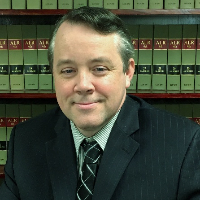Grant White Collar Crime Lawyer, Alabama
Sponsored Law Firm
-
 x
x

Click For More Info:
-
The Law Offices of Richard L. Cooper, P.A.
848 Brickell Avenue Suite 800 Miami, FL 33131» view mapDWI/DUI, Drug Trafficking, Felony Nationally Ranked Top 40 Under 40
With Richard L. Cooper you can expect a trusted confidant who will work diligently to fully understand your case and determine a road map to help you regain control of your life.
800-756-2781
Not enough matches for Grant White Collar Crime lawyer.
Below are all Grant Criminal lawyers.
Albert Dalton Chandler
✓ VERIFIEDAccident & Injury, Immigration, Criminal, Workers' Compensation, Social Security
Shannon Matthew Moore
✓ VERIFIEDEstate Planning, Divorce, Personal Injury, Criminal, Mass Torts
We are dedicated to maximizing results for our clients!
Shannon Moore was born in Huntsville, Alabama. He is a graduate of Grissom High School and he received his undergraduate degree from the University of... (more)
FREE CONSULTATION
CONTACTFREE CONSULTATION
CONTACTMichael Louis Mannor
Criminal, Divorce & Family Law, Lawsuit & Dispute, Social Security
Status: In Good Standing Licensed: 11 Years
Christina Lee Dixon
Traffic, Family Law, Criminal, Personal Injury
Status: In Good Standing Licensed: 22 Years
Mark Randall Teal
Civil & Human Rights, Divorce & Family Law, Criminal, Motor Vehicle
Status: In Good Standing Licensed: 36 Years

 Richard L. Cooper Miami, FL
Richard L. Cooper Miami, FL AboutMiami Attorney at Law
AboutMiami Attorney at Law ServicesCriminal Defense
ServicesCriminal Defense


